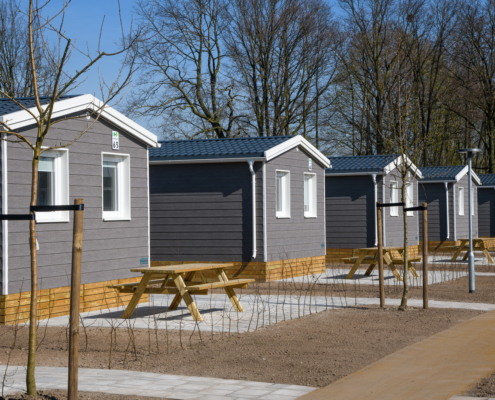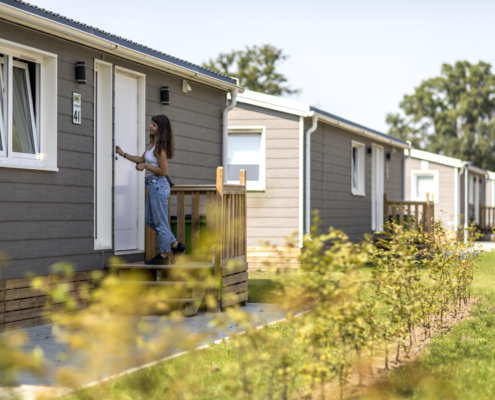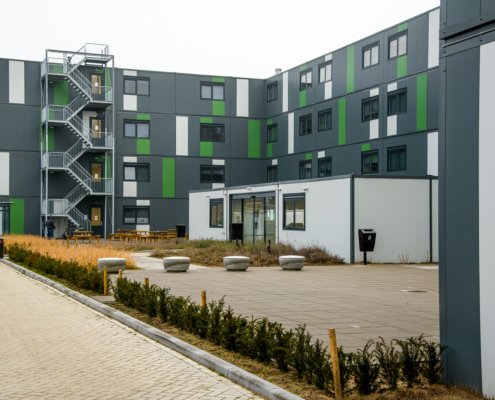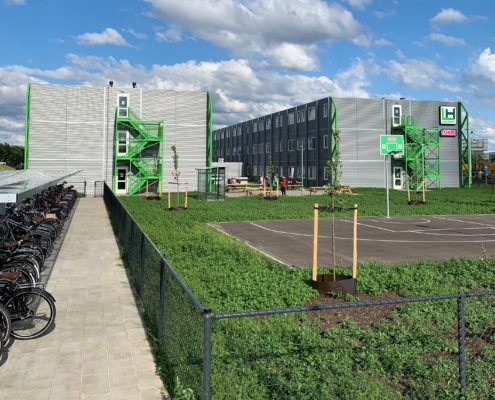In the Netherlands, there is a shortage of 120,000 to 150,000 decent places to stay for migrant workers. However, that does not mean that migrant workers do not have a roof over their heads; but that means that many of the housing locations for migrant workers do not meet the standards. That is why a quality standard has been developed in the Netherlands: the SNF standard.
What is the SNF standard?
In the Netherlands, the Stichting Normering Flexwonen (SNF) manages and maintains the registers of companies that meet the standard for housing migrant workers and SNF enforces this standard at the same time. All organizations that offer housing for migrant workers can obtain a certificate from Stichting Normering Flexwonen. The housing locations of the organizations that register with SNF are checked annually, and if they meet the housing standard, they receive a certificate.
SNF is widely supported by governments, trade associations and trade unions
SNF emerged from the “Nationale Verklaring Tijdelijke huisvesting arbeidsmigranten” (National Declaration on Temporary Housing for Migrant Workers) that was signed in March 2012 by a large number of parties such as the Minister of the Interior, the VNG, Aedes, ABU, NBBU, VIA, trade unions and various municipalities. The signatories have committed themselves, among other things, to making an effort to record standards for good housing in collective labor agreements and in certification, and to ensure a reliable system for enforcing those standards.
Components of the SNF standard
An organization that is included in the SNF register meets the standard for housing migrant workers. This standard consists of the following parts:
- Space and privacy
- Sanitary
- Safety and hygiene
- Services
- Information provision
- Fire safety and good employment practices
Each part consists of a specific number of requirements that the housing must meet. For a detailed description of the specific requirements per component, please visit the SNF website. These components can be found on the website of Stichting Normering Flexwonen. For an organization to receive certification, for example, there must be at least 1 toilet per 8 people, a fire extinguisher is important, and the residents have at least 10 m2 of usable living space available.
KAFRA Housing and SNF
KAFRA Housing is one of the organizations that has received a certificate from SNF. All KAFRA Housing housing locations therefore meet the set standards.
However, KAFRA continues where the SNF standard stops. KAFRA sets the new standard in temporary housing. How does this manifest itself in practice? KAFRA ensures that all its Mobile Homes are 30% larger than the standard prescribed by SNF. In addition, all living areas have their own kitchen and bathroom. Depending on the home type, these facilities are shared with 2 or 4 residents. KAFRA also ensures that residents can contact one of the Welfare Officers 24 hours a day, seven days a week, who ensure the management of the location and monitor compliance with the house rules. What is also of great importance to KAFRA Housing is the relaxation of its residents. In their spare time, residents can use outdoor sports fields, fitness rooms, table tennis and other sports and relaxation facilities.
Future of SNF
KAFRA Housing advocates tackling the abuses surrounding housing for migrant workers. In order to tackle the abuses, the SNF must play an important role by making various adjustments.
This approach has been complied with. From 2021, there will be a mandatory standard for the housing of migrant workers in the Netherlands. This standard does not yet apply in the Netherlands, but from 2021 every location that offers housing for migrant workers must be certified with the SNF quality mark and SNF will also tighten its standards. This also means that every location will be checked for this. To date, the organizations that register are checked annually at one location. If the housing is unsatisfactory and matters are not repaired quickly, the housing provider will be removed from the register of the SNF. This will change from 2021, which will hopefully drastically reduce abuses surrounding the housing of migrant workers.




